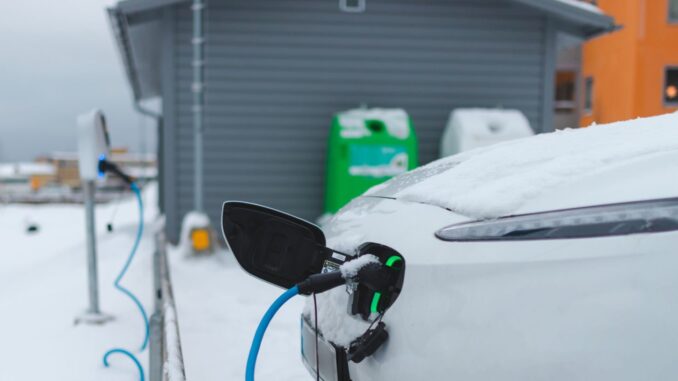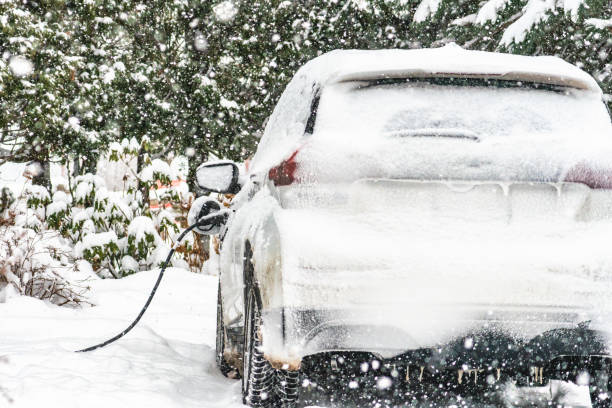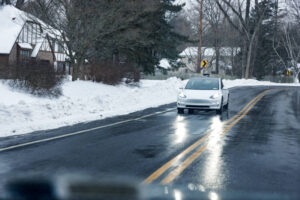
With the bone chilling temperatures some parts of Canada experienced recently, in some areas dipping to -40, the question of electric vehicle reliability is again being raised. People want to know their EV will have the range to get them where they are going, and back home again. According to Alan Downward, Communications and Project Coordinator at Plug ‘N’ Drive, the range of an EV battery drops about 20 to 25% in the winter, but he believes it is not that big of a deal.
According to Blacklock's Reporter, quoting a federal study, “The issue of reduced battery capacity at low temperatures is well known.” The Feasibility Of Hybrid Diesel-Electric Powertrains For Light Tactical Vehicles, was published by Defence Research and Development Canada in 2019. “To make this problem worse, unlike lead-acid, lithium-ion batteries have problems charging below zero degrees Celsius.”
A six year study called Evaluation Of The Electric Vehicle Infrastructure Demonstration Program, was released earlier this month by the Department of Natural Resources. The study, which cost $76 million dollars concluded "“It is too early to fully evaluate the intermediate and ultimate outcomes" of operating EV's in Canadian winters.
In Chicago, Illinois as many Teslas were abandoned during the recent cold weather due to battery issues. According to Britain's News Channel, people were forced to leave their vehicles as the cold completely drained the battery. Some people had to get towed while others were waiting in line to charge their vehicles. Some people’s batteries were drained even before they got a chance to charge their batteries.

Temps of -8 can drain batteries
Consumer Reports auto testers have determined winter temperatures as mild as -8 degrees Celsius quickly drain electric car batteries and cut performance by up to 50 percent. “Short trips in the cold with frequent stops and the need to reheat the cabin saps 50 percent of the range,” said a January 17 report Tests Show Electric Car Range Can Fall Far Short Of Claims.
"Unintended outcomes"
“Although zero emission vehicle technologies and solutions are commercially available there are technical and non-technical barriers and gaps, e.g. cold weather-related charging efficiency,” said Evaluation. “This program fills a unique niche by addressing specific Canadian requirements such as demonstrating technologies and solutions tailored for cold climates,” it added.
Another federal agency, Defense Research and Development Canada, in a 2019 report said it considered zero emission vehicles unreliable in Canadian winters.
“Several unintended outcomes are often associated with zero emission vehicles and electric vehicle charging,” said the report, adding: “Although there is a potential for negative unintended outcomes because of the transition to electric vehicles there are concrete efforts by the Government of Canada to mitigate many of these.”
The Canadian Government acknowledges that the electric vehicles all seem to have similar issues, no matter the brand. According to CBC, areas that are colder will be allowed to continue to purchase hybrid vehicles as long as the electric range is at least 80 kilometers.

If the Canadian Government eventually wants all vehicles on the road to be electric they have a lot of concerns that need to be dealt with. People are reliant on their vehicles as they live busy lives. This battery range issue will create reluctance towards purchasing an electric vehicle.

Be the first to comment